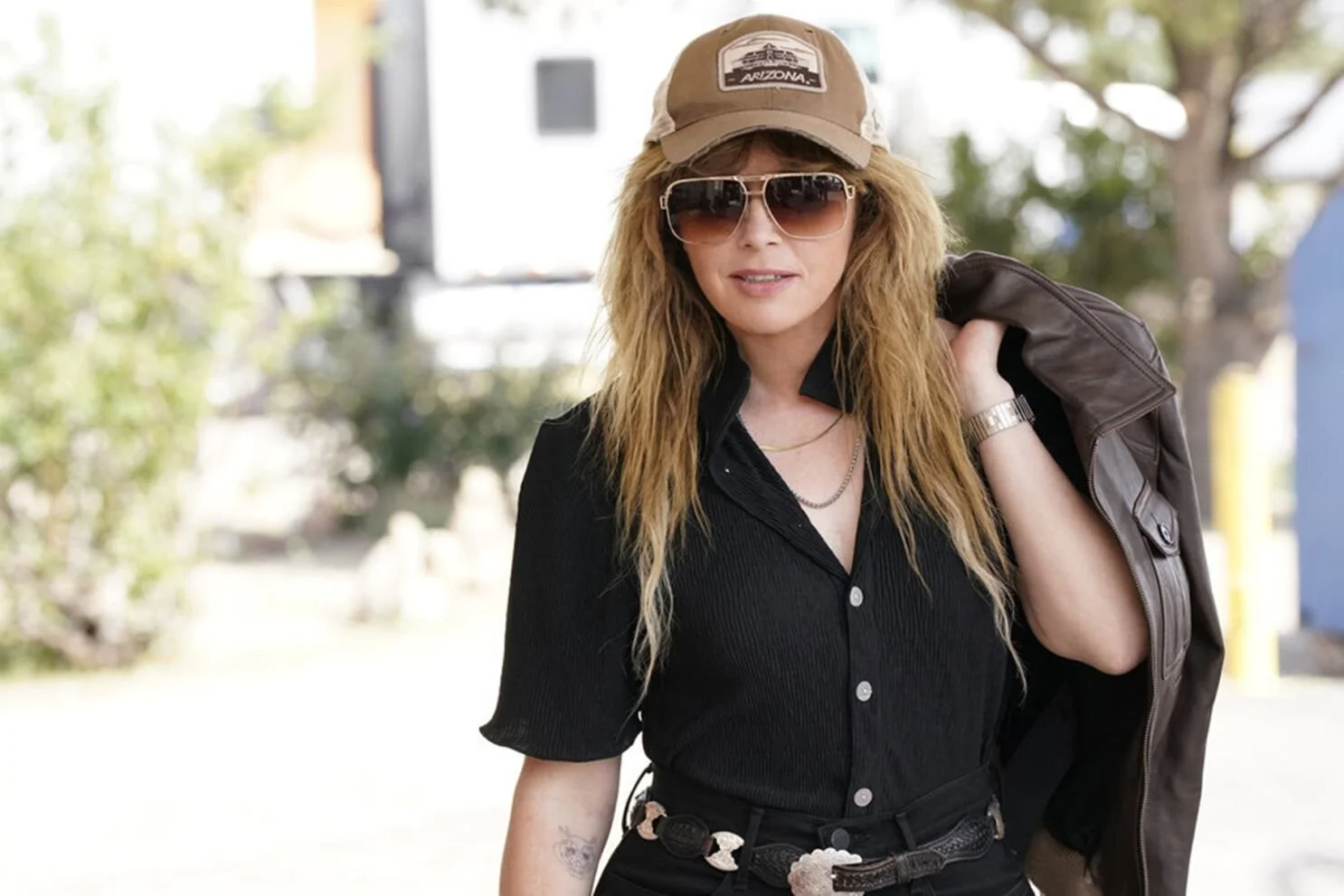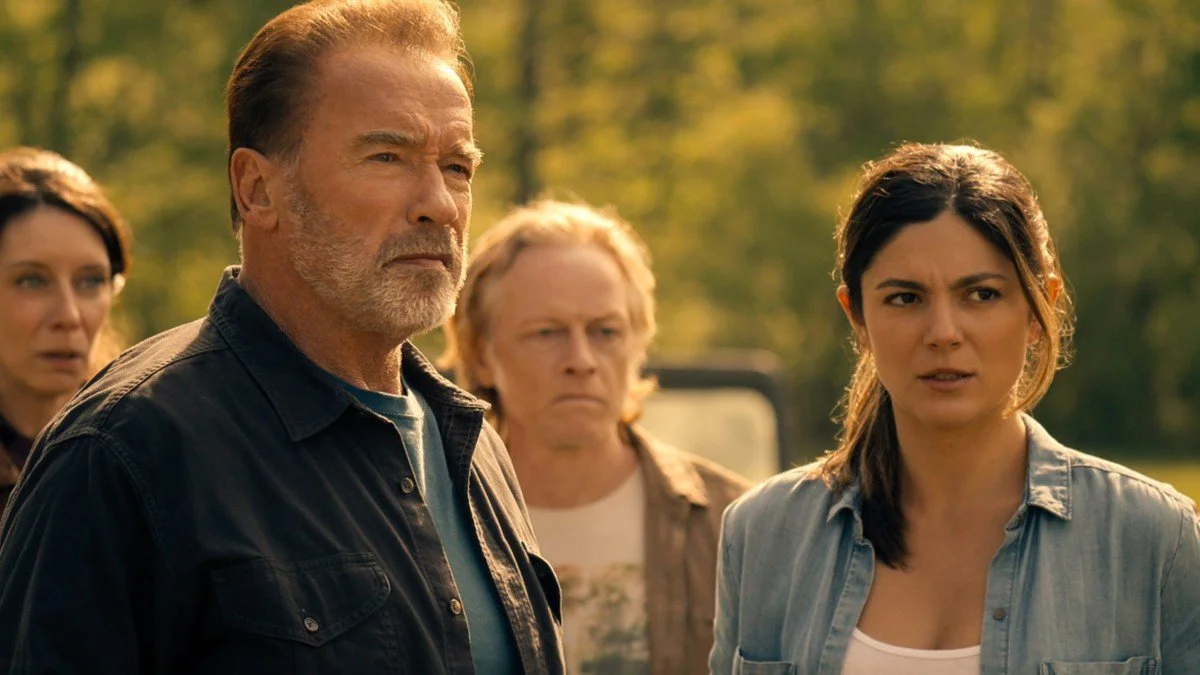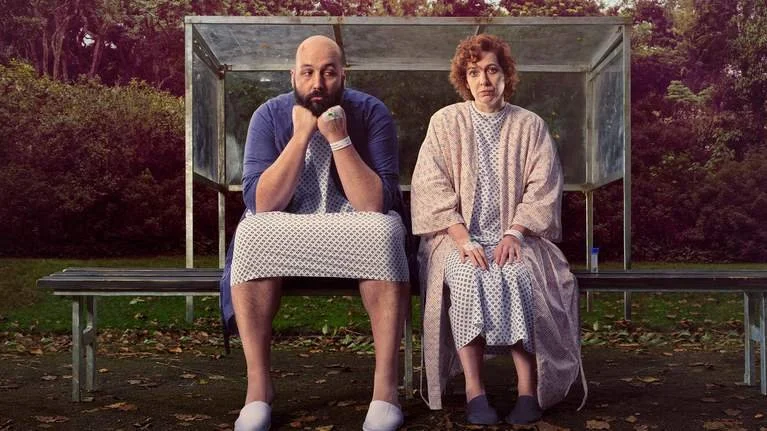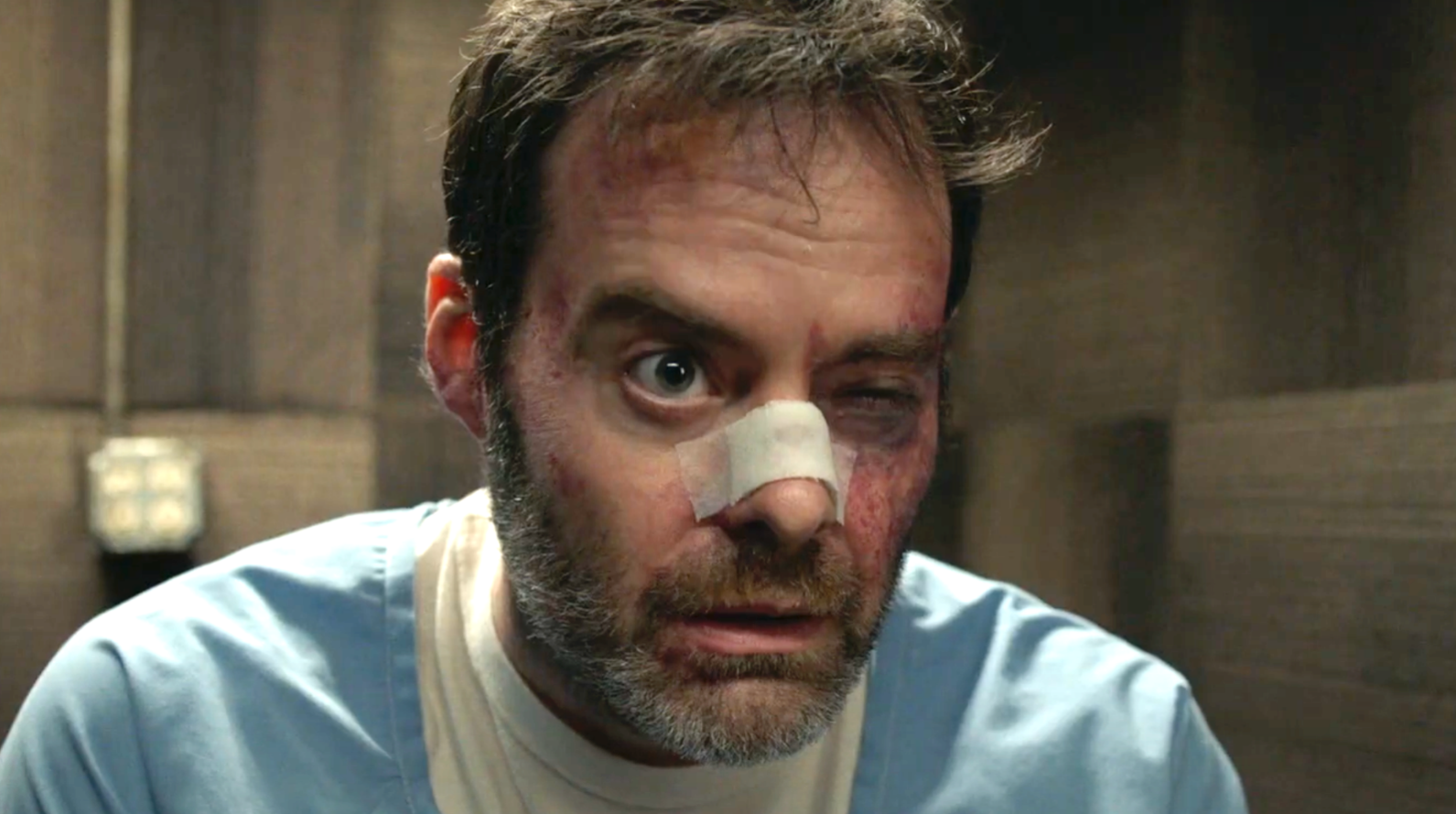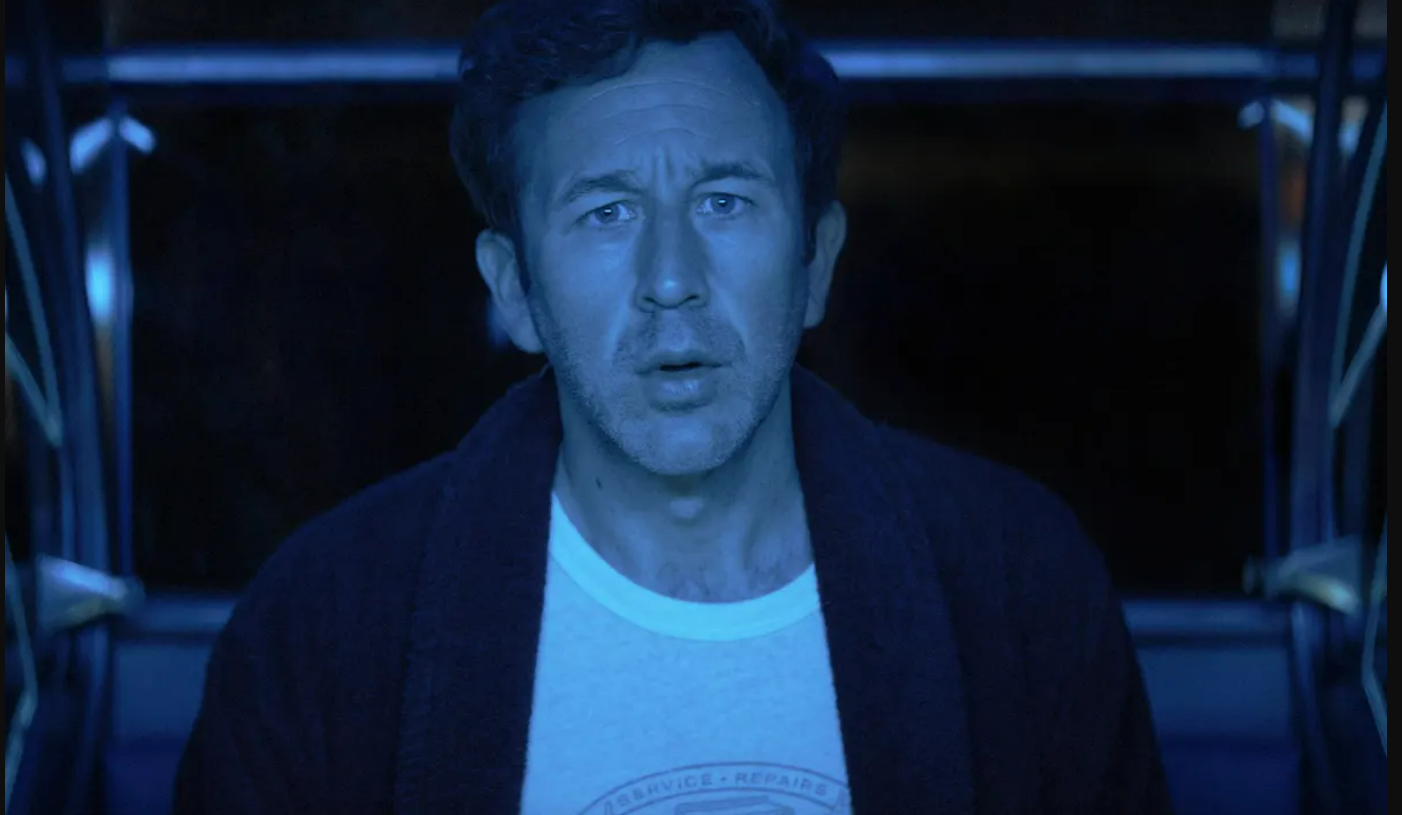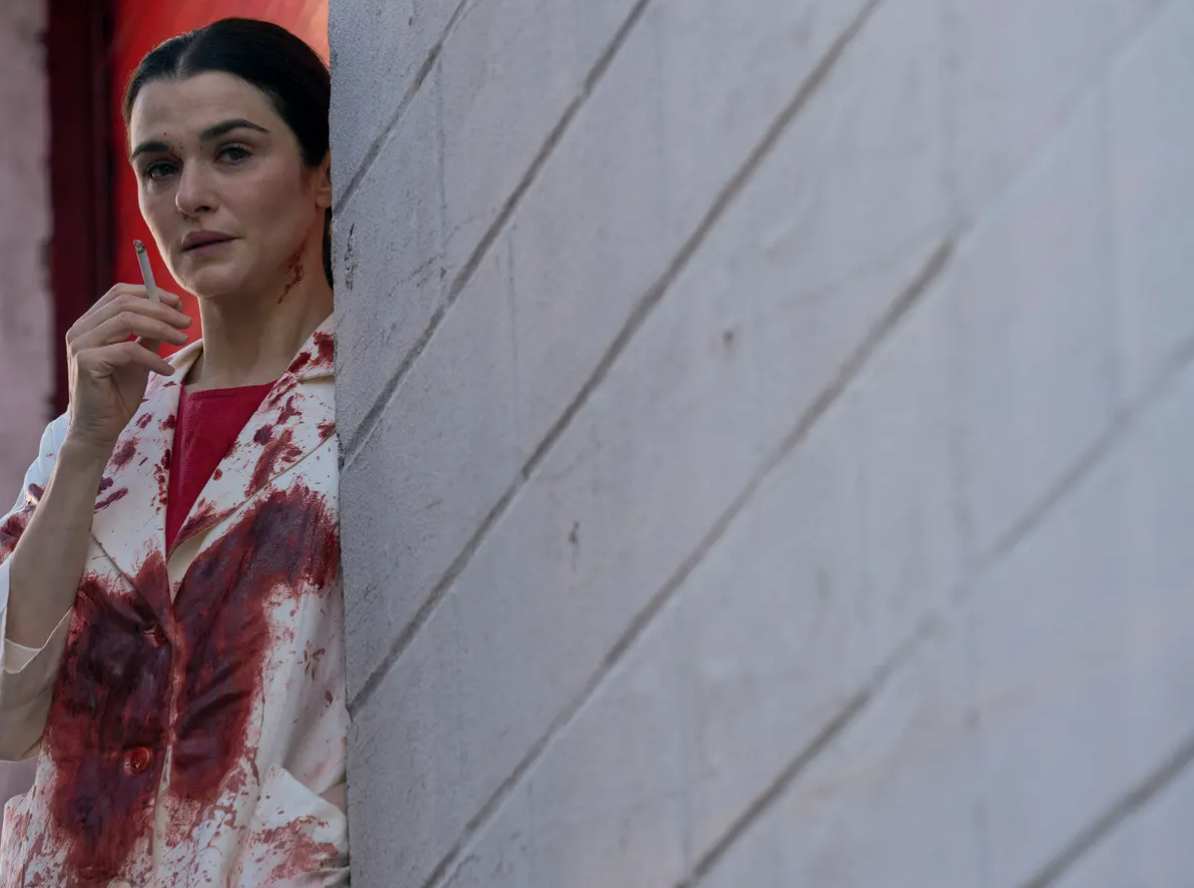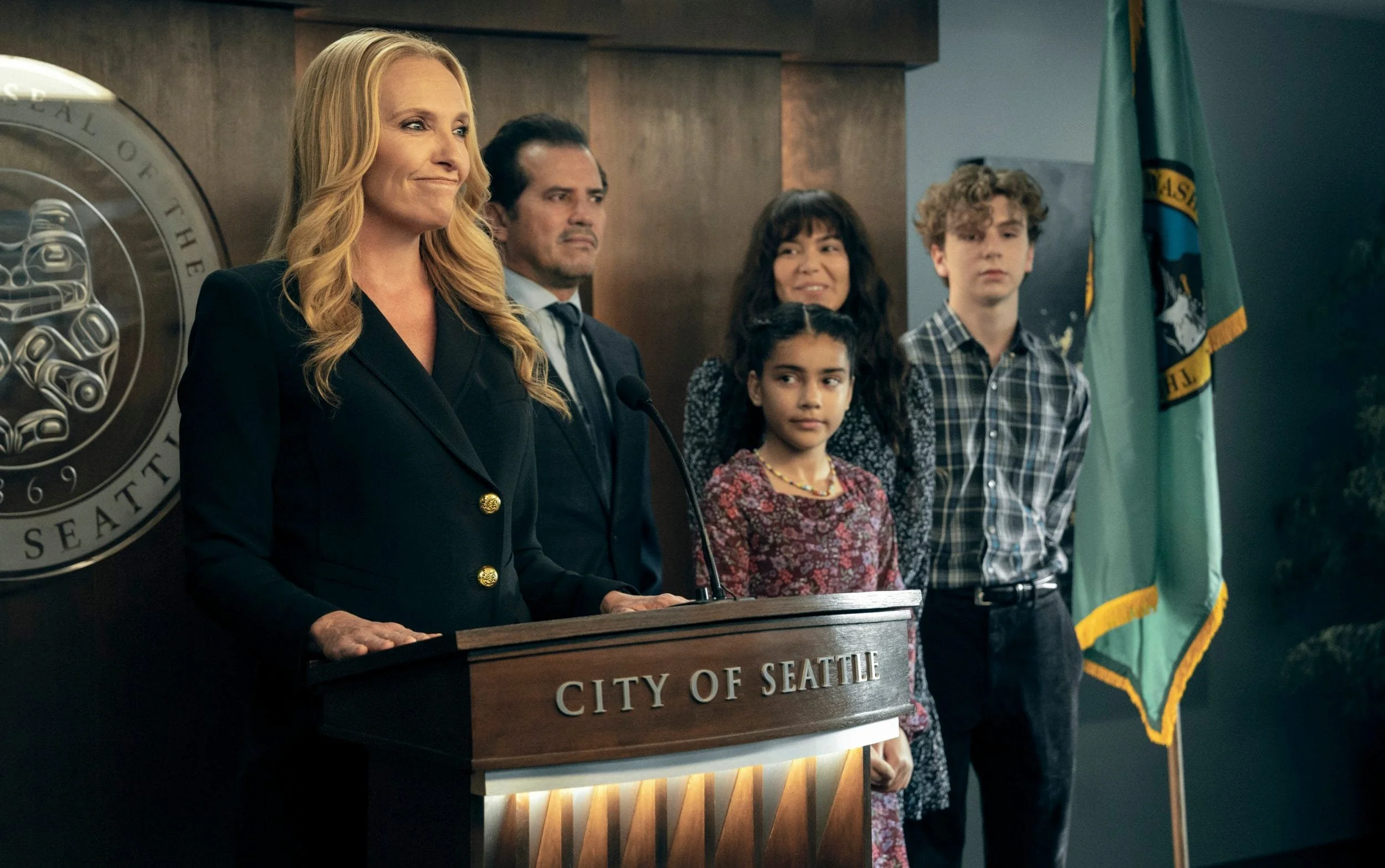Dave (Season 3)
The latest series of Dave Burd’s semi-autobiographical comedy series is as entertaining as ever, but offers little progression from previous instalments.
Available on Disney+ now
The latest series of this semi-autobiographical comedy series by Dave Burd, otherwise known by his stage name of Lil Dicky, doesn’t stray too far away from the formula that made its previous two entries so entertaining. We are essentially still watching Burd navigate fame and, more pressingly, his own neuroses while seeking critical and commercial approval and the love of a woman he is yet to meet.
Once again, Dave is peppered with some riotous celebrity cameos, with the most notable including Killer Mike, Rick Ross, and Usher - who Lil Dicky encounters at an anxiety-inducing party - and Brad Pitt, Drake, and Rachel McAdams, who all contribute to a stellar final two episodes. Alas, despite these star turns, it’s still Lil Dicky’s real-life hype man GaTa who makes for the most compelling character, particularly in episodes five and eight, where his mental health struggles are once again laid bare.
While the show continues to impressively blend comedy with serious, real-word issues, this most recent instalment does have a propensity to frustrate, due largely to its protagonist’s own lack of character development. There are hints at romantic resolution throughout its ten-episode run which feel timely and appropriate, but they are annoyingly forsaken, presumably for the sake of trotting out a fourth season which, while welcome, is perhaps not entirely necessary from a narrative perspective.
Despite these gripes, there is still plenty to enjoy about Dave’s third season and it continues to showcase Burd as a distinctive comedic voice.
Poker Face
Rian Johnson’s predictable murder mystery is turbo-charged by the indomitable Natasha Lyonne.
Available on Now TV and Sky Atlantic
Fans of Rian Johnson’s hugely successful Knives Out franchise are likely to find a lot of joy in Poker Face, which sees the director further indulge in his love for old school murder mysteries. Inspired by Columbo and other such procedurals, the series focuses on Natasha Lyonne’s down-and-out casino worker, whose mysterious, innate ability to detect lies allows her to solve a spate of perplexing murders while on the run from a vengeful casino boss.
Lyonne is tremendous in the lead role and fully justifies Johnson’s decision to build his show around her, with her deadpan comic stylings standing her apart from almost all other leading ladies working today. Along the way, she is aided by an impressive guest cast, the most notable turns from which come from Adrien Brody, Chloë Sevigny, Hong Chau, Joseph Gordon-Levitt, Nick Nolte, and Ron Perlman, while Benjamin Bratt also impresses as a recurring antagonist.
Nonetheless, your opinion of Poker Face is sure to be shaped by the extent to which you enjoy its genre influences. If you’re like me, then you might end up finding its format more than a little repetitive by the time it reaches its mid-way point, which is why I’m not overly enamoured by the news that it has been renewed for a second season. By the time the admittedly tight final two episodes come round, Poker Face had outstayed its welcome in my house, but different-minded viewers will no doubt find it a thrill all the way through.
If only one thing is certain about this show, it’s that it reiterates Lyonne’s unique star quality, which was rightfully acknowledged by her recent Emmy nomination.
Platonic
This big budget comedy is painfully pretentious and offensively unfunny.
Available on Apple TV+
Apple has demonstrated a niche for glossy, inoffensive comedy since foraging into the world of television, evidenced no better than the roaring success of Ted Lasso. With that show now having finished, there’s something of a football-sized hole in the company’s small-screen schedule.
Shrinking, co-created by Ted Lasso alumni, was a promising first attempt to move past Jason Sudeikis’ twee stylings. Platonic, which reunites Bad Neighbours co-stars Rose Bryne and Seth Rogen, is not. The show, created by real-life couple Francesca Delbanco and Nicholas Stoller (who directed the aforementioned Bad Neighbours franchise), is focused on a problematic friendship between Bryne’s disillusioned stay-at-home-mom and Rogen’s hopeless-but-hip manchild.
One can only assume that the intention of Delbanco and Stoller was to deliver a modern retelling of When Harry Met Sally, one that explores the age-old question of whether a man and woman can truly ever just be friends. However, the key difference between that romcom classic and Platonic is that the latter’s central characters are so intensely unlikeable that it’s nigh on impossible to invest, let alone resonate, with their respective arcs.
Indeed, Platonic has a lazy air about it that makes you feel as if the show’s creators thought that Bryne and Rogen’s admittedly undeniable star power would be enough for viewers to ignore just how clumsy and occasionally problematic the show’s storytelling is. For some, it might well be, but I found this to be a painfully posey, unfunny affair.
The Idol
Sam Levinson’s latest series is a depressingly ugly affair.
Available on Now TV and Sky Atlantic
Anyone who has witnessed a smidgen of Euphoria’s audaciousness will know that Sam Levinson is a creator that, for better or worse, has a knack for getting tongues to wag. That show has always been a morally complex affair - in one breath a daring exploration of teenage vices, in another a gratuitous and voyeuristic sexcapade.
The Idol, co-created by Levinson with Abel ‘The Weeknd’ Tesfaye and Reza Fahim, requires no such compromise from its audience, as it is brazenly vulgar in such a way that only the most depraved of viewers could find artistry in its sordidness.
Focused on Lily-Rose Depp’s titular pop idol and her coercive relationship with Tesfaye’s cult leader/con-artist, the series is essentially a highlight reel of Levinson’s worst impulses as a director, with every rare moment of character development forsaken for an act of sexual violence that intends to shock but only succeeds in making you question the mental wellbeing of The Idol’s creators.
Art has always had an innate propensity to challenge convention (and long may that continue), but directors such as Levinson - whether consciously or otherwise - fetishise and, at their very worst, trivialise addiction, sexual abuse, and trauma in such a needlessly hollow way that it strips their work of any value it might otherwise have had. There are moments in The Idol that are desperately ugly enough to make you feel complicit in their making just by tuning in, so much so that, by the final episode, you’re just relieved the ordeal is over.
Since it concluded its problematically short five-episode run, many have speculated whether The Idol’s well-documented production issues meant that the show was always doomed to failure. It’s certainly intriguing to consider what sort of story its original director Amy Seimetz (She Dies Tomorrow, The Girlfriend Experience) would have told, especially when you consider the show in tandem with the problematic experiences of real-life pop idols such as Britney Spears, Miley Cyrus, and Kesha.
Alas, what we got was one of the worst television series HBO has ever put its good name to, one that is nowhere near as gripping as it clearly thinks it is and, in Tesfaye, features one of the most leaden leading man to ever be put to screen.
Best Interests, BBC
Best Interests tells the heart wrenching story of a family torn apart in the last days of their daughters life.
Jack Thorne is back writing TV and this time he tackled a theme and a cause close to his heart: disability.
Best Interests tells the heart wrenching story of a family torn apart in the last days of their daughters life. Marney (Niamh Moriarty) has muscular dystrophy. Her terminal condition has rendered her sister Katie (Alison Oliver) invisible her whole life and, eventually, it will turn husband and wife Nicci (Sharon Horgan) and Andrew (Michael Sheen) against each other.
Within this moral quagmire of a series, where the doctors, the family and the courts disagree over whether to keep Marnie alive, the NHS come out firmly on top. Doctors in this series are presented as human, but heroes nonetheless. Consultant, Samantha (Noma Dumezweni) has done all she can to care for Marney throughout her entire life, she sees ending it as an end to her suffering, as a mercy.
Sharon Horgan’s Nicci goes on an entirely different journey. By the end of the series, her desperation and love for her daughter turns her into a villain. She uses money from a pro-life Christian charity to fight to keep Marney alive in the courts. She clings to testimony from a questionable American doctor and throws her husband Andrew under the bus in an attempt to keep Marnie alive. Her trajectory in particular asks the audience to reflect on the impossible choices parents have to make when their children die before them.
Best Interests is a programme that talks to us about the gravity of terminal illness in children - the sadness, the hopelessness and the unexpected joy. The show has the ability to make you laugh, cry and teach you that every moment with the ones you love is a gift.
Never Have I Ever S4, Netflix
Season 4’s Devi is worlds apart from the young woman we were introduced to in 2020.
The fourth and final instalment of Netflix’s Never Have I Ever has graced our screens. Over the last 3 years we’ve followed our chaotic fave, Devi Vishwakumar (Maitreyi Ramakrishnan), navigate grief, growth, and the consequences of her own actions.
Season 4’s Devi is worlds apart from the young woman we were introduced to in 2020. Once embarrassed of her Indian background, the series finale shows Devi fully embracing herself and her heritage before heading off to college.
Set in the Californian sunshine, the show is light-hearted and follows a high school student “coming of age” whilst haphazardly manoeuvring her way through loss, academic work, and self-worth. Along the way, romantically Devi finds herself torn between her academic nemesis Ben and school heartthrob Paxton. The outcome of who she ends up is revealed in the season’s final moments.
Mindy Kaling, the show’s creator, has not shied away from making the protagonist cruel on occasion. But at the same time, Devi is full of love, warmth and care. It’s been incredibly refreshing seeing an Asian character on screen who is desired, textured and complex - a complete contrast to the stereotypical beige, boring and depictions of women of colour that we see so often. Devi is rebellious, messy and an extremely flawed protagonist at times. But despite this, she does appear to be self-aware at times - which is exactly why audiences can resonate with her.
No stranger to self-sabotage, in Season 4 we see Devi’s most daring choice yet as she applies to only top colleges and initially doesn’t get accepted into any of them. To make matters worse, she makes a bad first impression to an admissions officer at the high school college fair. Embarrassed and too mortified to tell the truth, Devi gets caught up in a web of lies that spirals out of control. Since Devi was a child, her dream has been to attend Ivy league university Princeton. From Season 1, it’s a dream Devi and her late father, Mohan, used to frequently chat about before he sadly passed away.
Filled with funny moments and humorous faux pas, the Vishwukamar’s multi-generational household has also been at the centre of emotional turmoil and tear-jerking moments. The loss of Mohan strains the relationship Devi has with her mother, Nalini - but also brings Devi closer to her other female family members in her life.
Sitting comfortably in Netflix’s top 10 trending list, Never Have I Ever gave us a satisfying final chapter filled with laughter, light relief and lovely moments.
FUBAR
Arnie fans will find plenty of fun in this light-hearted but empty-headed action series .
Available now on Netflix
The ever-increasing prestige of the small screen has been well documented, and is of course one of the chief reasons sites such as this exist. What started with the bravura approach to storytelling of networks such as HBO has eventually transformed into a status quo in which every actor, no matter how famous, wants their own prestige project.
The latest big name to have been bested by his own FOMO is Arnold Schwarzenegger, who once upon a time was about as big a Hollywood star as you could get. Here, he lends his star power to FUBAR, created by Nick Santora and centered on a soon-to-be-retired CIA operative (Schwarzenegger) who is pulled back into the field after he discovers that his daughter (Monica Barbaro) is also working for the force.
Santora’s show is hardly original and almost certainly wouldn’t work without its leading man, but nonetheless retains a self-awareness that Schwarzenegger fans will only be too familiar with. There are plenty of knowing nods to the Austrian Oak’s more celebrated work, with FUBAR’s overarching story often feeling like a rehash of prior action flicks.
Naturally, your enjoyment of the show will be dictated by your appetite for such borderline meta-textual storytelling, although I suspect viewers such as I with an unapologetic soft spot for Schwarzenegger’s patented absurdity will have plenty of fun with this light-hearted, empty-headed series.
Black Mirror S6 E5 - Demon 79
What is a good reason to kill someone? Revenge? To prevent further death or suffering? This episode explores every avenue.
Black Mirror Season 6 was a violent series. We witnessed family massacres; basement tortures and werewolf attacks. The violence was sometimes shocking and sometimes gratuitous, the type you might expect Quentin Tarantino to be challenged on if it appeared in one of his films.
An adjacent and reoccurring theme in Brooker’s work is humanity’s love of blood sports. The paparazzi in Episode 4, Mazey Day showed us how much some people love to watch others suffer.
With both of these ideas in the ether, the finale of Season 6 of Black Mirror asked the question: is murder ever a good idea? A nice idea? Protagonist Nida (Anjana Vasan) becomes acquainted with a demon (Paapa Essiedu) via a talisman who tells her she must kill three people to avoid the end of the world.
If dodging the apocalypse wasn’t already a good enough reason for Nida to kill, her demon friend gives her insight into the lives and futures of her victims: they are rapists and murderers themselves, they deserve to die…don’t they? What is a good reason to kill someone? Revenge? To prevent further death or suffering? This episode explores every avenue.
Brooker and co-writer Bisha K.Ali work hard to build your appetite for murder in this finale. By the time Nida comes face to face with politician Michael Smart (David Shields), you’re gagging to get the hammer and do it yourself. We’ve witnessed Nida become the victim of the vilest kind of racism, we’ve seen that Smart will lead the UK into a Nazi dictatorship: smack him on the head, fade to black and we can all go and make a cup of tea.
For compassionate reasons, Nida can’t go through with it and is instead arrested. The end of the world ensues. What is the message of this conclusion? For me it speaks to the chaos of murder and war. That there can be no morality or reason for killing. The path to revenge, to murder and to war lead only to one destination: oblivion.
Black Mirror S6 E4 - Mazey Day
Mazey Day is Black Mirror at its most utterly unrecognisable
Black Mirror takes a hard and sudden turn with Mazey Day, directed by Uta Briesewitz and written by Charlie Brooker. It follows paparazzi Bo (Zazie Beetz) “pulled out of retirement” to locate – and take pictures of – the missing titular character, actress Mazey Day (Clara Rugaard) when she flees a set in the Czech Republic. But, of course, as Bo and her paparazzi accomplices unravel the Mazey Day conspiracy, nothing is as it seems. It’s an interesting take on the private investigator mystery formula, and an admittedly clever premise for a satire on celebrity culture. But what makes Mazey Day stand out within this season is not its premise, but its baffling, left-field twist.
It is difficult to discuss Mazey Day without discussing where it ends up. Where the opening leads you to believe that the character Mazey Day killed someone in a drug-fuelled car accident, the latter part of the episode focuses on Bo and the paparazzi dealing with the consequences of learning the strange truth behind the incident. Even if the reveal is somewhat confusing and not particularly well set-up, you can still see the outline of an interesting metaphor, with celebrity culture leading people to dark, morbid, and hedonistically wild places. It’s a premise – and twist – that certainly would have benefited from more development of the Mazey Day character, which is played excellently by Clara Rugaard, but is unfortunately not given enough screentime to come off as more than a slightly blank slate.
Besides this, Mazey Day is one of the more tonally “fun” episodes of the series, with witty, snarky young characters and dialogue being centre frame. Thanks to the unending sympathy the episode grants Bo, with her money problems, charisma, and human empathy, the episode lacks the same cynicism and hopelessness that the series usually has, compounded by the twist that completely removes the premise from reality. It’s a popular formula, and for the many casual viewers, it probably works. But it isn’t that fresh or memorable.
Discounting the fact that it is a standalone episode in an anthology series, Mazey Day is Black Mirror at its most utterly unrecognisable. It certainly has its audience, but time will tell if that audience is the same one that usually enjoys this series.
Black Mirror S6 E3 - Beyond The Sea
Beyond the Sea does not represent a surrender to technology, or even to a higher power – it represents surrender to your fellow man, in all his impulses and imperfections.
At its midpoint, Black Mirror’s season 6 brings us its longest and maybe quietest episode, Beyond the Sea. directed by John Crowley (Brooklyn, The Goldfinch), it details the interactions between two 1969 astronauts – the stoic Cliff (Aaron Paul) and the talkative and artistic David (Josh Hartnett). Each man has a robotic double on Earth that he can tap back into - but when tragedy befalls David’s replica, the men begin sharing Cliff’s, to a slow but predictably terrible outcome involving Cliff’s wife and David’s natural charisma.
The two-person spacecraft is not particularly cramped or unpleasant. In fact, the reality presented by this episode is of a pretty pleasant and utopic form of spaceflight - it’s clear just from the setup that rather than a depiction of literal space travel, it serves as a metaphor, two men adrift at sea, forced to put their lives in the hands of the other.
For Beyond the Sea does not represent a surrender to technology, or even to a higher power – it represents surrender to your fellow man, in all his impulses and imperfections. Being forced to trust him, with family or with a very large space shuttle, and being forced – and failing – to overcome unfeeling and closed-off masculinity to deal with his intensely dangerous trauma. For this reason, this episode is notably low-key, not exaggerating the aesthetics of its time and place, and dealing with technology far removed from anything even resembling what was possible in 1969. It draws the focus away from dystopia and onto the characters, their problems and interactions existing almost in a vacuum.
Beyond the Sea does not feel like a Black Mirror episode, even with the show’s loosely defined visual and narrative styles. The concept of a robotic double may have been done a number of times in the show’s earlier AI episodes, and the two-man spacecraft almost reads like a retreading of the cabin in White Christmas – but unlike White Christmas, nothing about Beyond the Sea feels grand, or even satirical. It’s a small-scale tale of grief and infidelity set in a small country house and an even smaller spacecraft, doused in the aesthetics of small-town Americana, centred on a couple of small, powerless little characters. It has the trademark pessimism of the series, but being set in the 1960s, it’s a timeless pessimism - one of human imperfection interacting with the unattainable magic of technology.
For a fan of the Black Mirror formula, one might be disappointed to be greeted with this feature-length period drama midway through the season, closer to fantasy than it is to sci-fi. However, as this series progresses past its sixth consecutive iteration, it’s interesting to see that something relatively fresh can still be made within it, perhaps indicating a movement towards a show more versatile in what it’s able to produce, thematically and stylistically.
Black Mirror S6 E2 – Loch Henry
True crime gets the Black Mirror treatment in the second instalment of its sixth series.
Available on Netflix now
The phenomenon that is the true crime documentary is under the lens of this Black Mirror episode, directed by Sam Miller and written by Charlie Brooker. Loch Henry focuses on dating film students Davis (Samuel Blenkin) and Pia (Myha'la Herrold), who travel to the titular countryside town to visit the former’s widowed mother Janet (Monica Dolan) before commencing work on their next project.
However, during their trip Davis and Pia learn about a notorious serial killer whose murdering of innocent tourists many years ago has had a drastic effect on the town’s economy, as well as a discordant link to the death of Davis’ father. This prompts them to change tact and make their own true crime flick about the murders, a decision which, in true Black Mirror fashion, leads to a shocking discovery that has life-changing implications for all involved.
Given how dark this episode is, it was unsurprising to learn that Miller’s previous work includes a stint on Luther, that most macabre of detective procedurals. The director deserves plenty of credit for Loch Henry, which makes for a gripping near-hour of television that pleasingly doesn’t feel all that similar to Black Mirror’s usual oeuvre. It is helped in no small part by compelling performances from Blenkin, Herrold, John Hannah and in particular Dolan, whose character’s about-turn is not easy to see coming.
Brooker gives plenty of service to his topic, not just from a tonal perspective but also in the sense that his screenplay is unafraid to lean into some of the more problematic aspects of the genre, such as the unintentional tendency to immortalise its subjects (we all probably know of at least one idiot that dressed up as Jeffrey Dahmer for Halloween last year). In that respect, it is a highly effective analysis of one of the more unsuspected televisual trends of the last decade.
Black Mirror S6 E1 – Joan Is Awful
The first episode of the new Black Mirror series is a darkly comic exploration of deep-fake technology.
Available on Netflix now
The return of Charlie Brooker’s dark anthology series is ushered in by Joan Is Awful, which is directed by Ally Pankiw (Feel Good) and written by Brooker. The episode is focused on its titular main character (played by Annie Murphy of Schitt's Creek fame), a disillusioned tech CEO who is shocked to discover that the events of her life are being retold almost in real-time by a streaming app that bares an uncanny resemblance to Netflix.
This revelation bizarrely puts Joan in the crosshairs of Salma Hayek, who appears to be playing her in the lead role of the hugely popular show. However, thanks to a wild encounter involving a considerable amount of Burger Kings, an ensuing dicky tummy, and a church wedding, we soon discover that Hayek, like Annie, has been duped by the aforementioned streaming giant’s term and conditions, and is actually only in the show via a CGI rendering of her likeness.
Sure enough, Joan and Hayek are soon on a collision course with their high-tech nemesis, in a standoff which sees Black Mirror indulge its trademark propensity for playing with multiple genres (in this case action, comedy, and science fiction). Though the final act of Joan Is Awful didn’t entirely work for me, the episode does pose timely questions about companies’ use of personal data and image rights, and the burgeoning reality of deep-fake technology within the entertainment industry.
The latter topic is perhaps the most compelling (check out Adam Buxton’s recent interview with Tom Hanks for a more refined perspective on its implications) and does cause one to ponder what the future of mainstream entertainment might look like in years to come. Joan Is Awful isn’t perhaps the most plausible analysis of this, but nonetheless ought to be credited for raising the issue.
Significant Other, ITVX
The opening scene of Significant Other, a show that forms part of the powerful rebrand of ITVX, is a profoundly unique piece of screenwriting. Sam (Youssef Kerkour) is about to die of an overdose, when he is interrupted by Anna (Katherine Parkinson) who is dying of a heart attack. Comedy might be back in the building at ITV, but we don’t remember it being like this.
Youssef Kerkour and Katherine Parkinson are an undeniably charming double act. The world and setting of Significant Other is stripped back and basic, giving their dual performance the feeling of a theatre two hander for long stretches. The city of Manchester is a distinct character in its own right during the fleeting moments that Sam and Anna leave the confines of these quirky flats.
While the set up of the show is profoundly unique, as mentioned above, the rest of the series is decidedly more familiar. It presents us with well-worn romantic comedy tropes (staging a date to make an ex jealous; an unwanted pregnancy announcement). Although it’s intention is to subvert these tropes, it doesn’t quite manage to do it in the same way it masterfully subverted the meet cute in the series opener.
How dark does this comedy go? Really quite dark when you reflect on it. The two characters both express genuine interest at points of wanting to be dead. There are incisive monologues on depression that will resonate with anyone that has suffered from the malaise, especially as it relates to relationships.
The brief moments of light that emerge from the darkness are warming and illuminating. Anna’s reflection on presence of mind and the simple pleasure of “taking a bottle of cranberry juice going to Sackville Gardens, lying on the grass in the sun and having a brilliant afternoon [sic]” is a tonic for any audience member in the depths of heartbreak or general sadness.
Significant Other at its core is a facetious reflection on love and death. It arrives at the conclusion (as if we don’t all know it deep in our hearts) that we all need love. Otherwise we will die.
Barry (Season 4)
The fourth and final season of Alec Berg and Bill Hader’s odd delight is expertly delivered.
Available on Now TV and Sky Atlantic
Barry has long been one of the most curious shows on mainstream television, it being an odd combination of action, comedy, and drama. For four seasons, we have watched veteran/hitman/actor Barry Berkman (Bill Hader) attempt to exorcise his demons and commence a new life, only to find himself frequently pulled back into the murk of Los Angeles’ criminal underworld.
Given their creation’s unique premise, Hader and co-creator Alec Berg could be forgiven for finding this final act a difficult one to land, and yet no such difficulty can be detected in a fourth series that is tight, expertly paced, and neatly concluded. Hader is once again in fine fettle, reiterating his position as one of contemporary comedy’s most unique voices, as are co-stars Henry Winkler, Sarah Goldberg, Stephen Root, and Anthony Corrigan.
Interestingly, this chapter of Barry elects to continue the show’s recurring motif of leaping between timeframes and questioning the reliability of its characters’ memories and points of view, making for a viewing experience that is both challenging and rewarding. The oddity of the central narrative also brings an air of pulp fiction to proceedings, with the real-life absurdity of the film industry also granting an unlikely air of believability to events.
Hader and Berg also ought to be credited for ending their show at an appropriate time. When you have a hot property on your hands, it can be tempting to keep it pumping for as long as possible, but this is a well-executed swansong that will secure the legacy of their impressively quaint show.
Succession (Season 4)
The glorious finale of this once-in-a-generation show doesn’t disappoint.
Available on Now TV and Sky Atlantic
It’s not immediately easy to understand why Succession has evolved into a global phenomenon over its four-series run. At first glance, it is a quick-witted and uber-detailed boardroom drama that unsubtly throws shade at the Machiavellian families that have gradually moulded American politics to reflect their own image.
Though that in itself is an interesting and timely premise, it does not account for what makes Jesse Armstrong’s magnum opus the rare beast that it is. No, that would be the discordant Roy family that lie at the epicentre of the show. For four seasons, we have witnessed how the machinations of patriarch Logan (Brian Cox) have impacted Kendall (Jeremy Strong), Roman (Kieran Culkin), and Shiv (Sarah Snook).
Shockingly, this final series allowed us to see how Logan’s demise (which shockingly came as early as episode three) would be treated by his offspring. And, true to form, it was an ugly spectacle. Despite all of the abuse their father made them endure, the Roy children never managed to truly step out of his shadow, with the final episodes seeing them engaged in a bitter power struggle that ultimately wrought them nothing other than a hollow cash prize.
By the final refrains of Succession’s final episode, scored impeccably for the last time by Nicholas Britell, we were made to contemplate a depressing conclusion in which no character was redeemed. Kendall’s life was in tatters as he contemplated a future beyond the legacy he had always expected, albeit in vain, to inherit. Roman’s own personal tragicomedy ended as badly as we always expected it would, with the show’s malicious court jester looking every bit the stilted man-child he always was.
Perhaps the bleakest fate, however, belonged to Shiv, who seemingly opted for a life spent on the arm of the improbably triumphant Tom (Matthew Macfadyen), whose own arc concluded with him being unexpectedly anointed as the newly minted CEO of the Logan empire.
Though such a joyless finale may initially come as a surprise, it doesn’t require deep consideration to realise that this was always how Succession was destined to end. After all, this is fundamentally a show about the consequences of people’s actions, be it a father’s rejection or the illegal crowning of a new POTUS. Indeed, the despair felt by the show’s three main characters could even be viewed as just desert for the litany of sins we have seen them commit over the show’s glorious five-year run.
Prestige dramas of this ilk come along once in a blue moon, but Succession really ought to be considered amongst the very best of them. You only need to look as far as episodes three, seven, eight and nine of this final series to appreciate the intricacy of the world Armstrong has created, and to feel the depth of emotions that lie beneath the surface of its biting, infinitely quotable dialogue.
Truly, this is a televisual triumph that ought to be treasured for the ages.
Ted Lasso (Season 3)
The final series of this great show might not be perfect, but it provides a fitting send-off for (most) of its cherished characters.
Available on Apple TV+
Goodbyes are never easy, especially when they’re directed at people we love. And it’s fair to say that is how fans of this affecting series have come to feel about its characters.
Whether Ted Lasso’s presumed swansong proved to be a fitting one is a topic for debate, with its final episode managing to wrap up many, but not all, of the show’s narrative threads. For some, such as Jason Sudeikis’ titular protagonist, it was a near-perfect conclusion to a three-series arc that has demonstrated tangible development and admirably explored complex and timely topics such as anxiety and toxic masculinity.
The same can arguably be said for other key characters such as Rebecca (Hannah Waddingham), who finally stepped out of the past and into her future, and Roy (Brett Goldstein), who learned what it means to be a true leader. Sadly, that’s not the case for the likes of Keeley (Juno Temple) and Nathan (Nick Mohammed), whose roles are impacted negatively by the show’s decision to pivot towards a more individualistic means of storytelling.
Nonetheless, when at its best, Ted Lasso remains a charming endeavour that can make you laugh and cry in equal measure, one that has a propensity to craft brave stories (such as Colin’s coming-out storyline) which are sadly not commonplace within the morally bankrupt industry in which it is set. More importantly, in an increasingly cynical world, this was a show that really could make you feel and, for that reason alone, I will miss it.
The Gallows Pole, BBC
What does a period drama made by Shane Meadows look like? The man who made his name through minimalist, verité, cheap and often amateur filmmaking? The answer is…it is a bit weird… certainly to start with.
If you’re expecting an intricately detailed period world containing contemporaneous vernacular delivered by highly regarded theatre actors, you won’t get it, The Gallows Pole is This is England, incidentally set in the 1700s.
Meadows sticks to his distinctive long takes, improvised dialogue and working-class mischief in this series. In doing so he takes the period drama genre and shows us a completely different side to it. It’s a jarring and daring set of stylistic choices that demonstrate how unbeholden Meadows is to established ways of doing things.
Dave (Michael Socha) and Grace’s (Sophie McShera) relationship forms the backbone of The Gallows Pole, establishing the show as a nuanced, cheeky and beautiful love story. Both actors are irresistibly charming and full of life across the three episodes. Socha is particularly hilarious with the looks and the lines that Meadow’s improvisational freedom allows him. Grace is an example of how well Meadows creates strong, funny and unpatronising female characters within worlds where the patriarchy is firmly intact.
Like the rest of the Warp Films canon, you can rely on The Gallows Pole to build to an exciting narrative climax and set piece. By the third episode, the show firmly finds its rhythm and has us excited to see how Dave and Grace’s heist will play out. Episode Three is Shane Meadows in his pomp, a finale that contains the threat of terrible violence as well as Shakespearean light relief through Mand (Stevie Binns) and Broadbent (Adam Fogerty).
The series ending is pure euphoria. It uses our expectation of violence as a misdirect, and instead basks in the simple joy that money can bring to a community that has none (a particularly powerful image in a cultural climate where scarcity is not merely confined to the past). The final scenes are set to Nick Mulvey – Fever to the Form one of a number of beautiful and transcendent music choices.
Shane Meadow’s body of work contains some of the most intricate records of British violence, mischief, catharsis and hard won happiness. He can proudly add The Gallows Pole to that stunning oeuvre.
The Big Door Prize
This small-screen adaptation of an M.O. Walsh novel flirts with a deeper purpose, but settles for being something far less challenging.
Available on Apple TV now
Apple have settled on a somewhat familiar formula for their comedy series as of late. There’s usually at least one big name attached to the project, its set often includes implausibly gorgeous properties that usually belie the characters’ humble professions, and its tone is, more often than not, very twee.
That is certainly true of The Big Door Prize, with Chris O’Dowd taking top billing as a humble high school teacher whose life, along with those of the residents of his sleepy hometown, is thrown off kilter by the arrival of a mysterious machine that predicts its user’s life potential. Such a concept alludes to a deeper meaning than anything the show (which is itself adapted from M.O. Walsh’s novel of the same name) ever manages to display, with showrunner David West Read (of Schitt’s Creek fame) electing to keep things safe and mostly inconsequential.
Nonetheless, The Big Door Prize is not without its charms. O’Dowd is typically amiable, co-star Gabrielle Dennis does good work in a more polarising role, while relative newcomers Sammy Fourlas and Djouliet Amara arguably steal the show as forbidden teenage lovers. Subsequently, this is likely to please viewers in search of some harmless, good-natured fluff.
Dead Ringers
Rachel Weisz is on riotous form in Alice Birch’s so-so adaptation of a Cronenburg flick.
Available on Amazon Prime
This small-screen adaptation of David Cronenberg’s 1988 film could easily have been called Bad Sisters, had Sharon Hogan not already called dibs on it. Nonetheless, like Horgan’s excellent Apple TV comedy, this is a project that is almost entirely focused on femininity and sisterhood within the sphere of modern times. Though it may not be as funny or empathic as that show, it is an intriguing and challenging experience that further demonstrates Amazon’s commitment to making unsettling dramas (it’s no coincide that this closely followed the release of Donald Glover’s Swarm).
Dead Ringers is adapted by the British writer Alice Birch and it’s quickly easy to identify the fingerprints of her previous television work, specifically the complex sexual dynamics of Normal People and the biting dialogue and innate cynicism of Succession. Sadly, this project doesn’t quite manage to meet the lofty standards of either of those works and struggles to evolve within the generous confines of its six-episode run.
Nonetheless, it’s rewarding to see a show that is so unapologetically focused on the unique trappings of womanhood, something which is demonstrated by its unflinching portrayal of pregnancy, miscarriage, and menstruation. Rachel Weisz is on stellar form in her dual lead role as twin gynaecologists whose intrinsic connection spells trouble for those that encounter them, with Britne Oldford and Poppy Liu standing out from the supporting cast.
As said, Dead Ringers never fully moves beyond its quirky central premise but, when at its best, is unnervingly good fun and arguably a career standout for Weisz, who dominates proceedings from beginning to end.
The Power, Amazon
The Power, based on the novel by Naomi Alderman, is a definitive and all-encompassing chronicle of the state of gender politics, feminism and misogyny in 2023.
The opening episodes of the series on Amazon feel massive, traversing continents as the story and its characters move from Nigeria, to the middle east, to London and back again.
Not only is the show able to move between countries, The Power is impressive in the way it manages to move between an array of feminist issues, providing a comprehensive picture of global misogyny in 2023. The series covers toxic male vloggers; the relationship between trans and womens’ rights; the desire for men to create legislation relating to womens’ bodies, as well as the show’s central provocation: what would violence against women look like if men no longer had a physical advantage over them? The way that the device of ‘the power’ is able to tie together all of these issues in one coherent narrative is a feat.
While the narrative is coherent, something about it is quite saturated and the lack of relationship between each individual story strand stifles your enjoyment and investment in the series at times.
It was maybe a strange choice to favour the bureaucratic, subtle narrative that follows Senator Margot Cleary-Lopez (Toni Collette) over the heart-wrenching and action packed strand led by Ria Zmitrowicz. Zmitrowicz played the lively, rowdy Cockney daughter of gangster Bernie Monke (Eddie Marsan) who rises through the ranks of her father’s business as it becomes clear she is now the most physically threatening. She probably should have had more airtime than she did.
The fragmented narrative strands built pace and intrigue into the final episode, where attempts were made to cross the stories, but you got the sense this could have come sooner. All in all The Power was a gigantic undertaking that, due to its scale and scope, slightly stifled your investment in individual characters.

